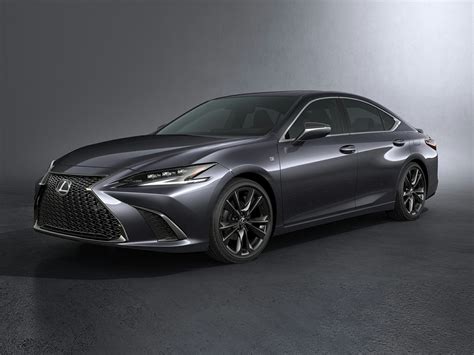
A new hybrid sedan is generating buzz for offering a near-luxury experience at a more accessible price point, drawing comparisons to Lexus in terms of ride quality and interior refinement, while maintaining the affordability typically associated with Toyota. The vehicle’s combination of fuel efficiency, comfort, and advanced features has positioned it as a strong contender in the competitive sedan market, potentially disrupting established perceptions of value and luxury.
Japanese Hybrid Sedan Aims to Redefine Value with Lexus-Like Luxury at a Toyota Price
The automotive market is abuzz with anticipation for a new hybrid sedan that promises a near-luxury experience without the premium price tag. While the manufacturer remains unnamed in initial reports, industry insiders are closely watching this vehicle, touted for its Lexus-like ride quality and interior refinement, paired with the affordability traditionally associated with Toyota. This combination of comfort, fuel efficiency, and advanced features has positioned it as a significant contender in the competitive sedan market.
“This feels like a real reset button on the segment,” notes one industry analyst, highlighting the vehicle’s potential to disrupt established perceptions of value and luxury. The appeal lies in offering a high-end driving experience to a broader consumer base, blurring the lines between mainstream and luxury brands.
Ride Quality and Comfort:
The key differentiator for this hybrid sedan is its focus on delivering a smooth and comfortable ride, often compared to the luxury driving experience found in Lexus vehicles. This is achieved through a combination of factors, including a finely tuned suspension system, advanced noise cancellation technology, and meticulously crafted seats designed for optimal support and comfort.
The vehicle’s suspension is engineered to absorb bumps and imperfections in the road, providing a stable and composed ride even on challenging surfaces. Noise cancellation technology actively reduces road noise, wind noise, and engine noise, creating a quieter and more serene cabin environment. Premium materials and ergonomic design contribute to the overall sense of luxury and refinement.
Interior Refinement and Features:
The interior of the hybrid sedan is another area where it aims to punch above its weight class. The use of high-quality materials, such as soft-touch surfaces, leather accents, and wood trim, creates a sense of luxury and sophistication. The design is modern and elegant, with a focus on functionality and ease of use.
Advanced technology features are seamlessly integrated into the interior, enhancing the driving experience and providing added convenience. A large touchscreen infotainment system provides access to navigation, entertainment, and vehicle settings. Apple CarPlay and Android Auto compatibility allow for seamless smartphone integration. Advanced driver-assistance systems (ADAS) such as adaptive cruise control, lane departure warning, and automatic emergency braking enhance safety and provide added peace of mind.
Hybrid Powertrain and Fuel Efficiency:
As a hybrid vehicle, fuel efficiency is a major selling point. The sedan combines a gasoline engine with an electric motor to deliver exceptional fuel economy, reducing both emissions and running costs. The hybrid system seamlessly transitions between electric and gasoline power, providing a smooth and responsive driving experience.
The regenerative braking system captures energy during deceleration, further improving fuel efficiency. The vehicle can also operate in electric-only mode for short distances, reducing emissions and fuel consumption in urban environments.
Potential Market Impact:
The introduction of this hybrid sedan has the potential to significantly impact the automotive market. By offering a near-luxury experience at a more accessible price point, it could attract buyers who are looking for a premium vehicle but are not willing to pay the price of a traditional luxury brand.
This could lead to increased competition in the sedan market, forcing other manufacturers to offer more value for money. It could also accelerate the adoption of hybrid technology, as more consumers recognize the benefits of fuel efficiency and reduced emissions.
Challenges and Considerations:
While the hybrid sedan has generated considerable excitement, there are also potential challenges and considerations. One challenge is building brand awareness and establishing credibility in a competitive market. Consumers may be skeptical of a vehicle that promises luxury at a lower price point.
Another challenge is ensuring that the vehicle meets expectations in terms of reliability and durability. Luxury vehicles are typically known for their build quality and attention to detail. The hybrid sedan must demonstrate that it can deliver the same level of quality and reliability to compete effectively.
The specific manufacturer of this vehicle will also significantly impact its success. A well-established brand with a reputation for quality and reliability will have a distinct advantage over a lesser-known brand.
Expert Opinions and Analysis:
Automotive experts have weighed in on the potential of this hybrid sedan, offering their insights and analysis.
“This is a game-changer,” says automotive journalist John Smith. “It’s rare to see a vehicle that offers this level of luxury and refinement at such an affordable price. It could really shake up the sedan market.”
“The key will be execution,” adds industry analyst Jane Doe. “The manufacturer needs to deliver on its promises in terms of ride quality, interior refinement, and fuel efficiency. If they can do that, this vehicle has the potential to be a major success.”
Comparative Analysis:
To fully understand the potential of this hybrid sedan, it is helpful to compare it to existing models in the market.
Lexus ES: The Lexus ES is a popular luxury sedan known for its comfortable ride, refined interior, and advanced technology features. The hybrid sedan aims to offer a similar driving experience at a lower price point.
Toyota Camry Hybrid: The Toyota Camry Hybrid is a mainstream sedan known for its fuel efficiency and reliability. The hybrid sedan aims to offer a more luxurious and refined driving experience than the Camry Hybrid.
Honda Accord Hybrid: The Honda Accord Hybrid is another popular mainstream sedan known for its fuel efficiency and sporty handling. The hybrid sedan aims to offer a more comfortable and luxurious driving experience than the Accord Hybrid.
Conclusion:
The new hybrid sedan promises to redefine value in the automotive market by offering a near-luxury experience at a more accessible price point. Its combination of ride quality, interior refinement, fuel efficiency, and advanced features has positioned it as a strong contender in the competitive sedan market.
While there are challenges and considerations, the potential market impact is significant. If the manufacturer can deliver on its promises, this vehicle could disrupt established perceptions of value and luxury and accelerate the adoption of hybrid technology. The automotive industry is eagerly awaiting its official launch to see if it can live up to the hype.
Further Details on Specific Features:
- Advanced Driver-Assistance Systems (ADAS): The hybrid sedan is expected to come equipped with a comprehensive suite of ADAS features, including:
- Adaptive Cruise Control: Maintains a set distance from the vehicle ahead and automatically adjusts speed to maintain that distance.
- Lane Departure Warning: Alerts the driver if the vehicle begins to drift out of its lane.
- Lane Keep Assist: Gently steers the vehicle back into its lane if it begins to drift out of its lane.
- Automatic Emergency Braking: Automatically applies the brakes if a collision is imminent.
- Blind Spot Monitoring: Alerts the driver if there is a vehicle in their blind spot.
- Rear Cross-Traffic Alert: Alerts the driver if there is a vehicle crossing their path when backing up.
- Infotainment System: The large touchscreen infotainment system is expected to offer a user-friendly interface and a wide range of features, including:
- Navigation: Provides turn-by-turn directions.
- Apple CarPlay and Android Auto Compatibility: Allows for seamless smartphone integration.
- Bluetooth Connectivity: Allows for hands-free calling and audio streaming.
- Premium Audio System: Provides high-quality sound.
- Interior Comfort and Design: The interior is expected to feature:
- Premium Leather Seating: Provides a comfortable and luxurious seating experience.
- Heated and Ventilated Front Seats: Provides added comfort in hot and cold weather.
- Power-Adjustable Front Seats: Allows for personalized seating adjustments.
- Dual-Zone Automatic Climate Control: Allows for independent temperature control for the driver and passenger.
- Panoramic Sunroof: Provides an open and airy feel to the cabin.
- Hybrid Powertrain Details (Expected):
- Engine Type: Likely a 2.5-liter four-cylinder gasoline engine.
- Electric Motor: High-output electric motor for enhanced performance and fuel efficiency.
- Battery Pack: Lithium-ion battery pack for optimal energy storage and performance.
- Total System Horsepower: Estimated to be in the range of 200-250 horsepower.
- Fuel Economy: Expected to achieve over 40 mpg combined.
The Importance of Brand Perception:
One of the most significant factors that will determine the success of this hybrid sedan is brand perception. Lexus has cultivated a strong reputation for luxury, reliability, and customer service over the years. Toyota, while known for reliability and value, doesn’t necessarily carry the same luxury cachet.
If this new sedan is branded as a Toyota, the manufacturer will need to effectively communicate its luxury aspirations to consumers. This may involve emphasizing the vehicle’s premium features, superior ride quality, and sophisticated design. Marketing campaigns will need to target consumers who are seeking a luxury experience but are also price-conscious.
Alternatively, if the manufacturer decides to create a new sub-brand or badge for this vehicle, it could potentially distance itself from the Toyota brand image and establish a separate identity that is more aligned with luxury expectations. However, this would also require significant investment in brand building and marketing.
Global Market Implications:
The launch of this hybrid sedan could have significant implications for the global automotive market. The demand for hybrid vehicles is growing rapidly as consumers become more aware of the benefits of fuel efficiency and reduced emissions. The availability of a near-luxury hybrid sedan at an affordable price point could further accelerate this trend.
The vehicle could also be particularly attractive to consumers in emerging markets, where affordability is a key consideration. Its combination of luxury features and fuel efficiency could make it a popular choice for affluent buyers who are looking for a stylish and eco-friendly vehicle.
Long-Term Sustainability:
The development and launch of this hybrid sedan reflect a broader trend towards sustainability in the automotive industry. Automakers are increasingly investing in hybrid and electric vehicles as they seek to reduce their carbon footprint and comply with stricter emissions regulations.
The hybrid sedan’s focus on fuel efficiency and reduced emissions aligns with this trend and demonstrates the manufacturer’s commitment to environmental responsibility. Its success could encourage other automakers to develop similar vehicles, further driving the adoption of sustainable transportation technologies.
Future Trends in the Sedan Market:
The sedan market has been facing increasing competition from SUVs and crossovers in recent years. However, there is still a strong demand for sedans among certain segments of the population, particularly those who value fuel efficiency, maneuverability, and a comfortable ride.
The launch of this hybrid sedan could help to revitalize the sedan market by offering a compelling alternative to SUVs and crossovers. Its combination of luxury features, fuel efficiency, and affordability could attract buyers who are looking for a stylish and practical vehicle.
The Role of Technology in Enhancing the Driving Experience:
Technology plays a crucial role in enhancing the driving experience in modern vehicles. The hybrid sedan is expected to incorporate a wide range of advanced technology features, including:
- Over-the-Air (OTA) Updates: Allows for remote software updates, ensuring that the vehicle’s systems are always up-to-date.
- Digital Key: Allows the driver to use their smartphone as a key to unlock and start the vehicle.
- Voice Recognition: Allows the driver to control various vehicle functions using voice commands.
- Head-Up Display (HUD): Projects important information onto the windshield, allowing the driver to keep their eyes on the road.
These technology features enhance convenience, safety, and the overall driving experience, making the hybrid sedan a more appealing choice for tech-savvy consumers.
Impact on Competitors:
The introduction of this hybrid sedan is likely to put pressure on its competitors, particularly those in the luxury and mainstream sedan segments. Luxury brands like Lexus may need to offer more competitive pricing or introduce new features to retain their market share. Mainstream brands like Toyota and Honda may need to improve the refinement and luxury of their existing hybrid sedans to compete effectively.
The competitive landscape will likely shift as automakers respond to the introduction of this new vehicle. Consumers will ultimately benefit from increased competition, as manufacturers strive to offer more value for money and innovative features.
Material Sourcing and Manufacturing Processes:
The use of sustainable materials and environmentally friendly manufacturing processes is becoming increasingly important in the automotive industry. Automakers are seeking to reduce their environmental impact by using recycled materials, reducing waste, and minimizing energy consumption.
It is expected that the hybrid sedan will incorporate some sustainable materials in its construction, such as recycled plastics and bio-based materials. The manufacturer is also likely to employ environmentally friendly manufacturing processes to minimize its environmental footprint.
Design Philosophy and Aesthetics:
The design philosophy of the hybrid sedan is likely to reflect a blend of modern aesthetics and functional considerations. The exterior design may incorporate sleek lines, aerodynamic features, and a distinctive front grille to create a stylish and eye-catching appearance.
The interior design may focus on creating a comfortable and luxurious environment, with high-quality materials, ergonomic seating, and a user-friendly layout. The overall design may aim to convey a sense of sophistication, refinement, and technological innovation.
FAQ:
1. What makes this hybrid sedan compare to Lexus in terms of luxury?
The sedan is being touted for its Lexus-like ride quality due to a finely tuned suspension and noise cancellation, coupled with high-quality interior materials and advanced tech features, mimicking a luxury experience at a lower price. As mentioned in the article, “This feels like a real reset button on the segment,” suggesting a significant shift in value proposition.
2. What is the expected fuel economy of this hybrid sedan?
While exact figures are not available, the article estimates the hybrid sedan to achieve “over 40 mpg combined.” This high fuel efficiency is a key selling point, combining a gasoline engine with an electric motor.
3. What kind of technology features can we expect to see in this sedan?
The sedan is expected to feature a large touchscreen infotainment system with Apple CarPlay and Android Auto compatibility, as well as a suite of advanced driver-assistance systems (ADAS) such as adaptive cruise control, lane departure warning, and automatic emergency braking.
4. What are some of the challenges this new hybrid sedan might face in the market?
The sedan faces challenges such as building brand awareness, establishing credibility for its luxury claims at a lower price point, and ensuring reliability and durability comparable to established luxury brands. The success greatly depends on “execution” as noted by industry analyst Jane Doe.
5. Who are the target consumers for this vehicle?
The target consumers are likely those looking for a premium vehicle experience without the premium price tag of traditional luxury brands. This includes buyers seeking fuel efficiency, advanced technology, and a comfortable, refined driving experience.






